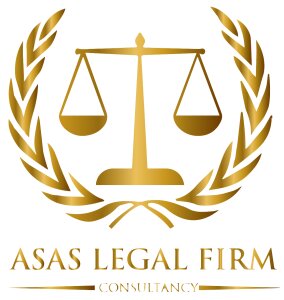Best Inheritance Law Lawyers in Egypt
Share your needs with us, get contacted by law firms.
Free. Takes 2 min.
Or refine your search by selecting a city:
List of the best lawyers in Egypt
1. About Inheritance Law in Egypt
Inheritance law in Egypt combines elements of civil law and Islamic jurisprudence. The Civil Code serves as the core framework for distributing assets after death, while Sharia-based rules apply to Muslim heirs for fixed shares known as faraid. Non-Muslim heirs may follow civil rules and their own religious traditions where applicable. The process typically involves will validity, estate valuation, debt settlement, and allocation of assets to heirs or legatees.
In practice, estates often pass through two main pathways: a will that directs distribution and an intestate succession process when there is no valid will. Courts or notaries may oversee probate administration to ensure shares are properly allocated and debts settled. The role of lawyers is to interpret the applicable law, gather documents, and advocate for accurate, timely distribution among heirs.
Egypt's inheritance framework also involves procedural steps for real estate transfers, probate filings, and potential cross-border issues when assets are held in different governorates or by foreign heirs. A knowledgeable attorney can navigate both civil procedures and any religious law considerations that may affect a given family situation.
2. Why You May Need a Lawyer
Example 1: You are a widow and a house owner - Your husband dies without a will, and the estate includes a primary residence and rental properties. An attorney can determine your statutory share, guide you through court or notary procedures, and help prevent your co-heirs from delaying distribution. This avoids prolonged disputes that can tie up assets for months.
Example 2: Siblings disagree over shares in a jointly owned villa - After a parent dies, siblings quarrel about unequal contributions and the division of a villa held in common. A lawyer can value the property, file for a fair appraisal, and negotiate a consent decree or court order to formalize the partition and avoid added litigation costs.
Example 3: You want to draft a will that is legally robust - You seek a will that clearly specifies shares and avoids later challenges. An attorney can draft a testament in compliance with Egyptian civil and, if applicable, Sharia guidelines, ensuring executors and beneficiaries understand their duties and rights.
Example 4: Cross-border assets and heirs - If your estate includes foreign assets or you are an heir living abroad, you may face complications in recognizing wills and transferring title. A legal counsel with experience in cross-border succession can harmonize Egyptian procedures with international practices and reduce delays.
Example 5: Guardianship and minor heirs - When heirs include minors or persons with disabilities, you need careful planning for guardianship, trust arrangements, and management of the estate. A lawyer can help establish protective arrangements that align with Egyptian law and safeguard beneficiaries.
Example 6: Tax and fees considerations - While Egypt has specific filing and registration fees for probate or notarization, a lawyer can identify which steps require fees, estimate total costs, and plan the process to minimize unnecessary charges or delays.
3. Local Laws Overview
Civil Code and Inheritance Provisions
The Egyptian Civil Code, known as the Civil Code No. 131 of 1948, is the primary statute governing inheritance, wills, and succession. It establishes rules for distributing estates, handling debts, and transferring title to heirs. The code has been amended over time to adapt to procedural needs and changing practice in probate matters. Inheritance under the Civil Code applies to both movable and immovable assets and interacts with personal status rules for Muslims and Christians alike.
Recent practice emphasizes clear documentation, formal notarization, and court involvement when necessary to confirm heirs and shares. This helps prevent disputes and ensures transfers align with the court's or notary's determinations. The Civil Code remains the foundational reference point for most inheritance disputes in Egypt.
Inheritance matters in Egypt are guided by the Civil Code with consideration for Islamic faraid rules for Muslim heirs when applicable.Ministry of Justice
Sharia-Based Inheritance Norms for Muslims
For Muslim heirs, inheritance shares are influenced by Islamic law (faraid), which prescribes fixed fractions for certain relatives. Egyptian courts and civil procedure recognize these shares when applying the Civil Code to Muslim beneficiaries. The interaction between Sharia rules and civil procedures can create nuanced issues in complex estates, especially with mixed religious families or interfaith marriages.
Lawyers advising on these matters must distinguish between universal civil obligations and religiously defined shares. They must also navigate potential conflicts between personal status claims and property rights. A well drafted will or careful probate planning can reduce ambiguity and potential disputes among heirs of different faiths.
Egyptian inheritance practice integrates Sharia-based shares for Muslim heirs with civil law mechanisms for probate and property transfer.Ministry of Justice
Notarial and Probate Procedures
The Notary system in Egypt (كتابة العدل) often handles will authentication and the formal transfer of assets in many estates. Notaries provide a path to probate when all heirs agree and property transfers are straightforward. For complex estates, court probate may be required to resolve disputes or to handle debts and multiple properties.
Notary and probate processes require careful document collection, including death certificates, titles, tax registrations, and heir certificates. A lawyer ensures documents are correctly prepared, dates are observed, and filings proceed without avoidable delays. Notaries and courts coordinate to ensure the estate is settled according to the applicable law.
The notarial route offers a practical path to confirm wills and facilitate probate in many straightforward estates.Ministry of Justice
CAPMAS notes that inheritance cases frequently involve multiple heirs and real estate across governorates, creating complex title transfers.CAPMAS
4. Frequently Asked Questions
What is the basic step to start probate in Egypt?
Begin by gathering the death certificate, title deeds, and lists of heirs. Consult a lawyer to determine whether probate will be judicial or via notarization. The lawyer will guide you through filing and notification requirements with the court or notary.
How do I know who is entitled to an inheritance in Egypt?
Entitlement depends on whether a will exists and, if not, on statutory shares under the Civil Code and Sharia rules for Muslims. A lawyer can calculate shares for each heir based on relationships and debt obligations.
What is faraid and how does it affect Egyptian inheritance?
Faraid refers to Islamic fixed shares for heirs under Sharia. In Muslim families, these shares influence the distribution of the estate. Civil procedures ensure faraid shares are honored alongside civil transfer processes.
Can a will be challenged after death in Egypt?
Yes. Wills can be challenged if there are questions about validity, capacity, or undue influence. An attorney can help file objections, present evidence, and defend or contest the will in court or before a notary.
Do I need a lawyer to draft a will in Egypt?
While a will can be created without counsel, a lawyer helps ensure compliance with the Civil Code, avoids ambiguities, and reduces the risk of disputes among heirs later on. Professional drafting also improves enforceability at probate.
What documents are typically required for inheritance probate?
Common documents include death certificates, family registers, property titles, heir documents, and creditor statements. A lawyer can prepare a tailored checklist for your estate and jurisdiction.
How long does probate typically take in Egypt?
Timelines vary by complexity. Straightforward probate may complete within 3-6 months, while contested estates can take 12-24 months or longer. A lawyer can estimate timelines based on asset types and location.
Is cross-border inheritance allowed in Egypt?
Yes, but cross-border assets require additional steps to recognize foreign wills and transfer titles. A lawyer with international succession experience helps coordinate with foreign jurisdictions and local courts.
Should I involve a notary for my estate plan?
Notaries are often suitable for straightforward wills and transfers. For complex estates or when heirs dispute shares, court probate may be more appropriate. A lawyer can determine the best route.
Do I need to file taxes or pay fees on inheritance in Egypt?
There are notarial and registration fees for probate and transfers. A lawyer can identify applicable fees, help minimize costs, and ensure timely filings to avoid delays.
What’s the difference between a will and an intestate succession?
A will directs distribution as written by the deceased. Intestate succession occurs when there is no valid will, and the estate is distributed according to statutory shares under the Civil Code and Sharia rules where applicable.
Can a non-Muslim heir claim shares in a mixed family estate?
Non-Muslim heirs are typically treated under civil inheritance rules. If a Muslim relative is involved, faraid shares may apply to the Muslim portion, while the non-Muslim shares follow civil law and probate rules.
5. Additional Resources
- Ministry of Justice (Egypt) - Official guidance on notary services, wills, probate procedures, and court processes related to inheritance matters. moj.gov.eg
- CAPMAS - Central Agency for Public Mobilization and Statistics; provides official data related to population, family structure, and property trends that can influence inheritance planning and disputes. capmas.gov.eg
6. Next Steps
- Clarify your goals and collect all relevant documents (death certificate, titles, wills, and family records) within 1-2 weeks.
- Consult a qualified inheritance attorney or legal counsel in Egypt to assess your case within 1-2 weeks of gathering documents.
- Decide on probate path (notary-based or court-based) with your lawyer within 1-3 weeks of the initial consultation.
- Obtain heirs and asset valuations, and prepare a comprehensive estate inventory within 2-6 weeks after decisions on probate type.
- Draft or review the will and related documents for accuracy and compliance within 2-4 weeks of the inventory completion.
- File required petitions and notices with the court or notary, monitor progress, and address any disputes within 1-6 months, depending on complexity.
Lawzana helps you find the best lawyers and law firms in Egypt through a curated and pre-screened list of qualified legal professionals. Our platform offers rankings and detailed profiles of attorneys and law firms, allowing you to compare based on practice areas, including Inheritance Law, experience, and client feedback.
Each profile includes a description of the firm's areas of practice, client reviews, team members and partners, year of establishment, spoken languages, office locations, contact information, social media presence, and any published articles or resources. Most firms on our platform speak English and are experienced in both local and international legal matters.
Get a quote from top-rated law firms in Egypt — quickly, securely, and without unnecessary hassle.
Disclaimer:
The information provided on this page is for general informational purposes only and does not constitute legal advice. While we strive to ensure the accuracy and relevance of the content, legal information may change over time, and interpretations of the law can vary. You should always consult with a qualified legal professional for advice specific to your situation.
We disclaim all liability for actions taken or not taken based on the content of this page. If you believe any information is incorrect or outdated, please contact us, and we will review and update it where appropriate.
Browse inheritance law law firms by city in Egypt
Refine your search by selecting a city.










